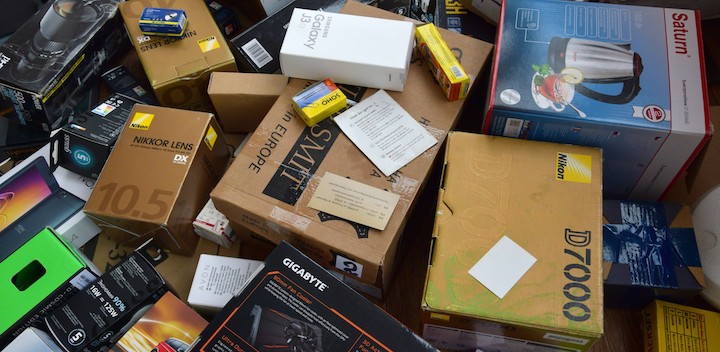|
I’m working on a ‘next level experience’ concept studio. So I’m asking myself some deep questions about the customer expectations of 2027 and beyond. Like whether meaning will be the next (premium) consumer experience frontier? What do you think? Would you agree I am onto something? Or am I being a bit fluffy? All around the world, people look for ‘more meaning’ in their lives. They learn new skills. Read books about philosophy and mindfulness. Change jobs. Do yoga. Community work. Seek a deeper connection to those they care about. Or escape to live in the desert. Each of us has our own path, but we all seek to make our lives and experiences more meaningful. The good news - for customers - is that meaningful experiences abound. Put on the spot, we can all mention a few. To me, there was the birth of my son. Hearing a song travelling home from Wales. Meeting a life-time hero. Having morning coffee with my wife. Figuring out the meaning of (my) life during a walk in the snow. But if you’re a seller, this development poses an existential challenge. As customers look for meaning beyond products, media and more, companies still rely on the consumption of more ‘stuff’ to survive and thrive. Unless you let go of the old paradigm. For almost a century, we’ve lived in a ‘mass-market’-world. Efficiencies and economies of scale allowed producers to bring down prices while growing profits. Governments and ‘rational’ economists encouraged this practice. It grew GDP, which would lead to happiness all around. At least, that was the theory. Meanwhile, we’ve all gotten smarter. The accumulation of more ‘stuff’ is not as fulfilling as we thought (and bad for the environment!). Social media only offers the illusion of connection. VR, theme parks and Netflix are enjoyable popcorn, yet unfulfilling. A dishwasher is ultra-useful, yet doesn’t really deliver ‘happiness’. Especially when realising that life is too short to waste (Covid? Ukraine? Global warming?…) So I believe it’s time we shift from Mass-Volume to Mass-Value. Instead of trying to make money from selling more stuff, we should make it from selling more meaning (through experiences). Instead of thinking scale and GDP, we should help customers pursue happiness and the fulfilment of their aspirations. Exchange some of that profit for prosperity. Now don’t panic, you can still make money. It will just be a different business model. Because from a buyer’s perspective, meaning has a much higher value (and thus price-tag) than any widget. Also, meaning is abstract. So the cost-of-goods to create it are only a fraction of producing a tangible product, offering opportunities for higher margin with (probably) lower environmental impact). Finally, personalisation is easier, thus letting you reach a variety of customer persona with the same proposition. And yes, this still involves stuff and services. While perhaps less prominent, they will still be a core element of your offer. But your true customer connection will come from something more. Something less tangible and more experiential. Something with meaning. Though it requires a different perspective. It requires your business to think about what people REALLY want beyond the consumerist dreams that us marketers have sold them (and ourselves). Truly digging into customer insights that go beyond the obvious. Creating value propositions that confirm or transform the customer into who they want to be. Not just through advertised promises, but ‘for real’. So where do you start? I’m still refining my terminology (help welcome!), but to me, an experience becomes meaningful when it connects to our identity or aspirations. When it confirms who we are in the world or takes us closer to who we want to be. Rationally. Emotionally. Socially. Spiritually. So if you want to ‘level up’ to meaningful experiences, ask yourself:
Or if you’re more into short-term fixes. How will I help my customers become more popular? Get rich? Grow their power/influence? Enhance their image/status? Better fit into their social sphere? While this second group of aspirations may not directly contribute to long-term customer happiness, significant market segments are willing to pay for them. So they will be on the table for some brands. Just don’t call me if you want to play this game 😉. I realise this may all sound woolly to you. To be honest, it still sounds fuzzy to me. A business school education and even a background in a dozen global customer experience programmes don't offer many tools to create meaning or transformation. But I am convinced of two things. First, is that meaningful experiences can be created. In the past 2.5 years, I’ve worked with the most wonderfully eclectic group of people active in the arts, science, philosophy, anthropology and more. The knowledge is out there, it just doesn’t live in the world of MBAs. Second, is that it’s inevitable. Both morally and commercially, the world of ‘more stuff’ is ending. Must end. After a century of superficial consumerism, we’re taking the turn into meaning. Like everything in life, change won’t happen overnight. But the brands that prioritise meaning over the production of more 'stuff' are the ones that will win the long game. So ... I’m making the jump into the unknown. Will you join me? If you're a senior leader who is serious about moving their business to 'money AND meaning', I'd love to hear from you. PS. To my friends in entertainment, I fully realise that the opposite of every truth can also be true. So I’m equally convinced that there is a precious role for shamelessly escapist experiences which take people as far away as possible from the realities of the day. Though I’d bet that if you make them meaningful too, you get a double whammy 😉. Do you want to talk about 'meaningful' experiences? Then let’s have virtual espresso. We can have a general chat or discuss some possible steps on the journey that you and your business could take. It’s a journey, so you can start with baby-steps. Even if the conversation goes nowhere, I’m sure it will be interesting for both of us. Leave a Reply. |
AuthorAlain Thys helps leaders in large organisations drive profit and growth through customer transformation. Archives
March 2024
Categories
All
|




 RSS Feed
RSS Feed

7/14/2022
0 Comments